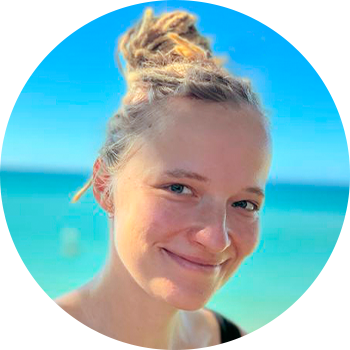
May
17
7:00pm
What do you know about five years of LSD research in Brazil?
By Chacruna Institute
Wednesday, May 17th, 2023 from 12:00-1:30pm PST
Since the discovery of its psychoactive properties, Lysergic acid diethylamide (LSD) has been used by psychiatrists as psychosis model, by psychotherapists as treatment adjunct, by artists for creative inspiration, by Silicon Valley’s microdosers as cognitive booster. Yet, a rigorous examination of these LSD effects is lacking and the relationship between psychosis model and therapy model unexplored. This conversation will report on our double-blind, placebo-controlled, crossover study, in which 24 healthy volunteers received 50 μg LSD or inactive placebo. We assessed diverse measurements on cognition, perception and behaviour, including acute psychotic, therapeutic and psychedelic experiences; repeated stream of thought and language assessments; creativity at drug peak; and cognition the morning afterwards. Over the last five years, abundant results emerged from this project. We found that LSD exerts paradoxical effects, inducing psychotic- but also therapeutic-like experiences; chaotic, disorganized but also meaning-laden, symbolic thinking, language and creativity; and a cognitive “hangover” but also “afterglow”. Overall, this points to an LSD-induced perceptual and cognitive deconstruction and reconstruction. The results contribute to the understanding of the psychedelic state per se, pave the way for a better exploration of mechanisms and applications in psycholytic therapy and hopefully promote a more realistic picture of this controversial substance in society.

Isabel Wießner received her Ph.D. in Mental Health at the University of Campinas, São Paulo, Brazil, where she led Brazilian’s first double-blind, placebo-controlled study on the effects of LSD on humans. She explored the LSD effects on consciousness, thinking, language, creativity, cognition, and psychosis- and therapeutic-like experiences. During her M.Sc. in Cognitive Psychology and Neuroscience at the University of Jena, Germany, she examined the effects of hypnosis on pain perception and EEG brain activity. For her B.Sc. in Psychology at the University of Konstanz, Germany, she investigated the effects of deep relaxation and sleep on memory and MEG brain activity. Currently, she is working as a postdoctoral fellow at the Federal University of Rio Grande do Norte, Natal, Brazil, where she is investigating the effects of DMT and ayahuasca on perception, imagination, cognition and EEG brain activity.

Kelan Thomas, PharmD, MS, is an associate professor and psychiatric pharmacist with outpatient behavioral health practice sites in San Francisco and Oakland. He completed undergraduate chemistry/pharmacology at Duke University, a PharmD at UC San Francisco, and a Clinical Research MS at University of Michigan. He has completed clinical pharmacy residencies at University of Michigan and University of Southern California. His research is related to psychopharmacology, adverse drug reactions and pharmacogenomics with the goal of optimizing mental health pharmacotherapy for psychiatric clients. More recently he completed the California Institute of Integral Studies (CIIS) Certificate in Psychedelic-Assisted Therapies and Research training program and started collaborating with psychedelic-assisted therapy clinical trials at UC San Francisco. He is also part of the Chacruna Chronicles editorial team, and curates the “Science Sunday” social media series with a psychedelic science publication posted weekly.
hosted by
Chacruna Institute
share